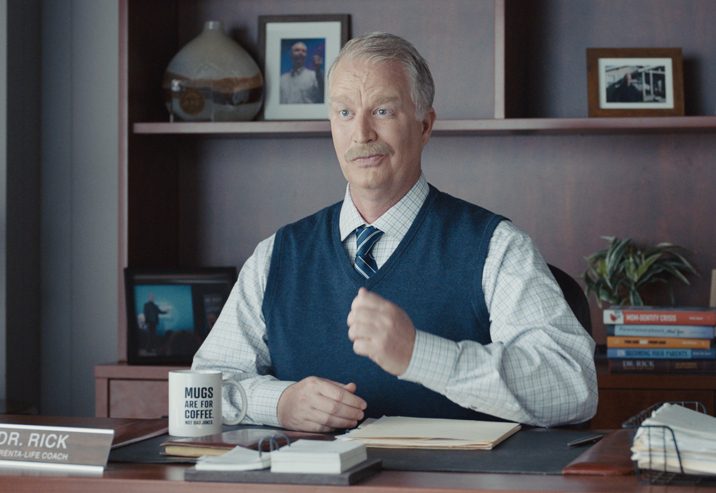Dean Richard Franza’s column appeared in the Sunday, Sept. 12, edition of the Augusta Chronicle. The post can be viewed here.
In April 2020, Progressive Insurance introduced new advertisements featuring “Dr. Rick” (no, not me!), a Dr. Phil-type who helps stop the people in the commercials from “turning into their parents.” These extremely amusing commercials show that as we age, we become more like our parents; whether we like it or not!
While we may not always like that result, it is not necessarily bad news. I actually think it would be good news if, in business and society, we became like my generation’s parents, often called the “Greatest Generation.”
Please don’t get me wrong. I am not saying that everything in the past was better and everything now is worse. As my fellow Long Islander Billy Joel said in his song “Keeping the Faith”: “… the good ol’ days weren’t always good, and tomorrow ain’t as bad as it seems …” However, I think the return of the traits and characteristics of my parents’ generation presented below would improve the business world and society as a whole.
Respect and courtesy: Unfortunately, respect and courtesy for others has eroded since the time of my parents’ generation. Recapturing such respect and courtesy would have an extremely positive impact on both business and society.
In business, a more respectful workplace, where everyone is treated with courtesy and valued for their contributions, will provide many benefits. It will provide a less stressful environment where employees will feel more comfortable sharing their thoughts and ideas. This will lead to increased productivity and collaboration, leading to both better business success and higher employee satisfaction.
Such satisfaction typically leads to higher employee retention. Society as a whole would also benefit from such respect and courtesy as people would be more likely to get along with one another.
Personal responsibility and accountability: In my parents’ generation, it seemed to me that everyone stood up to do their part and also took it upon themselves to determine their own success or failure. In addition, their generation seemed more accountable than we are. They accepted responsibility for their actions and they owned their failures.
It seems like leaders today always want to shift the blame to someone else or have a ready excuse for failure. Whether it be in the workplace or in government, the more effective leaders are those who are accountable for their actions and work hard to overcome their own failures. Unfortunately, accountability is becoming a more and more rare trait both in business and government.
Integrity: My parents’ generation valued honesty and trust ahead of personal gain. I am not so sure that is still the case. The lack of integrity undermines the effectiveness of both the workplace and society. Can you really work with/for someone you do not trust? Are you willing to follow someone who is not honest?
I think this goes hand in hand with personal responsibility and accountability. Trust is built through high levels of accountability. This also goes back to respect. If you truly respect people, you should deal with them with the utmost integrity.
Resilience and work ethic: The Greatest Generation surely knew about resilience. Having dealt with the Great Depression and World War II, they had an inner toughness about them that is less prevalent today. They became adept at bouncing back from adversity and learned how a strong work ethic could allow them to overcome most anything. Clearly, such resilience and work ethic pays dividends in the workplace in particular.
No matter what you do for a living, you are going to face tough situations and being able to stick things out and work hard will typically lead to success. As a society, being resilient will allow us to overcome many of the obstacles we face.
Loyalty and commitment: It seems like since my parents’ generation, there has been a steady decrease in loyalty and commitment in our workplaces and in society. Marriages do not last as long, people do not work for the same organization very long, and it feels like we are less committed to one another.
Please note that I believe loyalty needs to be a two-way street. Companies need to do a better job of demonstrating loyalty and commitment to their people, which will also lead to better performance and higher retention.
Financial responsibility: From the government on down to individuals, it appears that as a country, we are not nearly as financially responsible as my parents’ generation. Their generation was frugal, saved for a “rainy day” and did not expect to be bailed out if it behaved irresponsibly. Now, our government has unmanageable debt and companies often expect to get bailed out of bad situations, even if they are caused by their own doings. This behavior is then emulated by some individuals who are not ready for emergencies and economic downturns.
Humility and self-sacrifice: If you are a regular reader of my column, you know how I feel about this. In business and society, humility is definitely lacking, particularly in comparison to my parents’ generation. Please see my July 4 column on Practicing humility in a self-promoting world.
Dr. Rick is probably right in that there are a lot of reasons not to be like our parents: putting too many pillows on the sofa, telling the plumber how to do his or her job, and pronouncing quinoa as “Joaquin.” However, I know that we as business and society could be doing much better if we were more like my parents and their generation.







